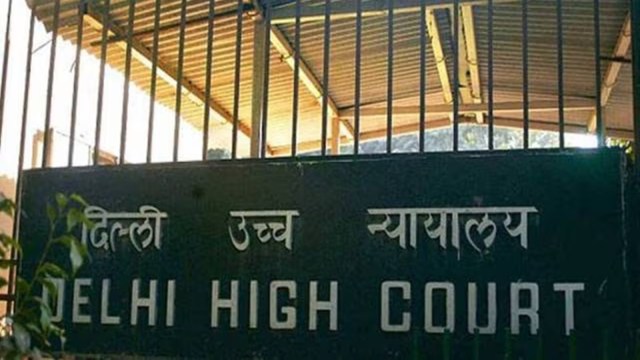HC raps Delhi, UP police for ‘passing the buck’, not lodging FIR into man’s ‘unnatural’ death
The court then directed the Delhi Police to register a zero FIR forthwith and to transfer all material and evidence collected by them in the course of inquiring into the death of the petitioner’s brother to the UP Police

The Delhi High Court on Friday rapped the Delhi and Uttar Pradesh police for “passing the buck” and failing to register an FIR following the death of a man under mysterious circumstances last year.
It observed that the “excuse” of an offence not having been committed within a police station’s territorial jurisdiction “is no longer available to any police station” with the Bharatiya Nyaya Suraksha Sanhita (BNSS) coming in.
The court was referring to Section 173 of the BNSS, which states that “every information relating to the commission of a cognizable offence, irrespective of the area where the offence is committed, may be given orally or by electronic communication to an officer in charge of a police station”.
Justice Anup Bhambhani made the observations while deciding a petition filed by the sister of the deceased. She said her brother was found dead on the night of December 3, 2024, inside a locked car with a carbon monoxide cylinder and syringes, and an ominous note in his diary.
The petitioner had complained that despite filing police complaints with the Knowledge Park police station in UP and Moti Nagar police station in New Delhi, no FIR has been registered to date.
The deceased man had left home in Delhi and was found dead in Greater Noida in UP.
The court observed that the circumstances “painted a ghastly picture of what was clearly not a natural death”. Justice Bhambhani observed, “After several hearings in the matter, this court gets the clear sense that the present case exemplifies the archetypal ‘passing-of-the-buck’ syndrome between the Delhi and UP Police.”
Expressing “serious consternation at the run of events in the present case, where two separate police forces did not perceive that critical forensic and other evidence would irretrievably disappear if it was not gathered immediately”, the court recorded that “both the Delhi and UP Police [are] remiss in complying with their duty of promptly registering an FIR.”
The court then directed the Delhi Police to register a zero FIR forthwith and to transfer all material and evidence collected by them in the course of inquiring into the death of the petitioner’s brother to the UP Police within a week.
It also directed the UP Police to register/re-register an FIR under Section 103 of the BNS and other relevant sections in relation to the death of the petitioner’s brother forthwith; and to proceed to investigate the matter without any further delay or dereliction.
The court held that the stance taken by the Delhi Police, that no cognizable offence was disclosed in the oral information given to them by the petitioner as it was only related to her brother having gone missing and, thus, did not attract an FIR, “is flawed”.
The court recorded that “there was sufficient information and material before the Delhi Police to have registered an FIR” for the offence of murder — “regardless of the fact that the body was recovered outside their territorial jurisdiction”.
The court further held that “the Delhi Police would have been justified to designate the FIR as a ‘Zero FIR’ and to have transferred the investigation to the UP Police”.
The UP Police, on the other hand, had justified the non-registration of the FIR on the ground that “they must await the completion of inquest proceedings before deciding whether any cognizable offence is disclosed in the case”.
The court also junked this reasoning. It noted that such a stance is contrary to BNSS Section 173 and reiterated that “no conclusive material or opinion is required at the stage of registration of an FIR”.
It went on to opine “that there was more than ample material available with the UP Police to proceed to register an FIR for the offence of murder, straightaway”.
The court noted that Section 173 of the BNSS, which deals with the registration of FIRs for cognizable offences, is equivalent to Section 154 of the CrPC, with an addition of the phrase “… irrespective of the area where offence is committed…”
The court recorded, “The obvious purpose of adding the aforesaid phrase to Section 173 BNSS is that the legislature wanted to address the mischief of police stations refusing to record information relating to the commission of a cognizable offence, on the excuse that the offence complained of has not been committed within their territorial jurisdiction. This excuse is, therefore, no longer available to any police station under the new provision of Section 173 of the BNSS.”







